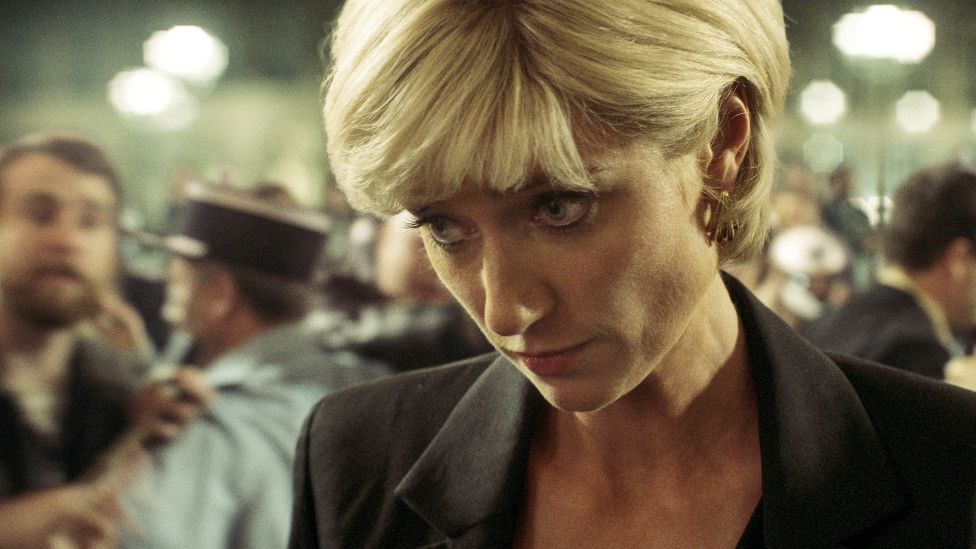The Crown season 6 review: Elizabeth Debicki’s

A grand return to form after a lacklustre season five, the sixth and final instalment of Netflix’s The Crown continues the show’s slow march in a new creative direction, farther away from its roots as a handsome costume drama. What began as an exploration of history through the perspective of a young woman — we watched as she found her footing in a harsh world, then as she surrendered herself to the very institution that imprisoned her, before becoming an enforcer of those same traditions herself — has transformed (briefly) into a character study of another. Having thankfully abandoned the sauciness of season five, The Crown is approaching the end of its (mostly) admirable run with a suitably sombre tone.
The four-episode first half focuses almost entirely on the run-up to and the aftermath of one of the world’s most widely-covered news events, barring perhaps 9/11 and the pandemic. Only an incident as seismic as the death of Diana could’ve reduced the royals into mere human beings, but that, The Crown suggests, is exactly what it did. Every moment in the first three episodes is uncomfortably ominous as if each character is aware of what is about to happen.
| The Crown season 5 review: Netflix’s once-regal show loses all objectivity in the worst season ever
There’s an impending sense of finality to these scenes. “When are you coming home?” Princes William and Harry ask Diana repeatedly on the phone, hours before she gets into a black Mercedes and drives away into the darkness of Paris. This happens after the show has already made a meal of her last in-person interaction with her former husband, Charles, during which they agree to be ‘brilliant at divorce’. In its own strange way, watching these four episodes of The Crown is similar to watching something like, say, The Passion of the Christ. Scenes build towards the inevitable with a sort of steadfast sobriety that projects the protagonist, in this case Diana, as some kind of martyr figure.Her philanthropy is highlighted, as is her capacity to love. Finally free — season six begins a year after she and Charles have legally separated — Diana is now a mother first and a reluctant royal later. Every time that she is hounded by the paparazzi, or made to sacrifice her personal life piece by piece, the camera zooms into her face for a wrenching close-up. And Elizabeth Debicki is quietly phenomenal in the role, finally getting a chance to build on the foundation laid by Emma Corrin a few years ago. Her eyes speak volumes. It could all be read as a grand overcompensation for how series creator Peter Morgan treated her in season five, which came dangerously close to labelling Diana a traitor to the realm, all while dutifully ignoring the many misdeeds of Charles, the Queen, and her husband Philip.
This time around, however, the show isn’t as reverential as it used to be. Instead, it acknowledges the Queen’s many flaws in addition to highlighting her abilities as a leader and matriarch, thereby inviting viewers to draw their own conclusions about her complexities and contradictions. “One would almost feel sorry for her, if one weren’t so cross with her,” she whispers in one scene, after being told that Diana might be romantically involved with the billionaire scion Dodi Fayed, played by Khalid Abdalla. There’s a sense that the Queen always viewed Diana as an antithesis to herself, someone who longed to be released from the shackles of ‘the system’ and actually succeeded. Scenes in which the Queen speaks about her are tinged with a hint of envy, beautifully underlined by Imelda Staunton in what she must have known would be a thankless performance.
Not only did she follow in the footsteps of Claire Foy and Olivia Colman, she inherited the crown, so to speak, in the era of Diana. As expected, she’s barely a presence in these first four episodes. And it isn’t like the show is doing her dirty by giving her inconsequential scenes and chaining her to a boring arc; it simply isn’t bothered about the Queen at all. Similarly, Lesley Manville is given a grand total of two lines as Princess Margaret. Maybe even one; I didn’t count. Gone are the days when The Crown would dedicate entire episodes to her tragic life story, doomed to unfold in the shadow of her sister’s growing influence. Philip, on the other hand, exists only to bark rules about royal protocol, as if he is some kind of ghostly gramophone playing a broken record in the background.
Speaking of spectres, much has been speculated about the ‘ghost’ of Diana that makes an appearance in these four episodes, and presumably also in the six to follow. But rather surprisingly, these scenes are written with sensitivity, and an eye for human drama. Dominic West is excellent, giving this fictional Charles a maturity and empathy that may very well be missing from his real-life counterpart. These character-centric moments were what made The Crown so special in its heyday — moments that chipped away at the exterior of these larger-than-life characters and exposed their vulnerabilities — and it’s so comforting to watch the show revisit this approach.
The final season could so easily have been a train-wreck, especially considering the subject matter it chose to tackle. It could’ve been exploitative, or worse, a dramatically inert retelling of a recent tragedy whose images have been burned in the minds of millions, if not billions around the world. But it’s all quite moving, from the rather shocking opening moments of episode one to the wrenching final sequence of episode four, which is essentially a remake of the film The Queen, also written by Morgan. It’s always interesting to observe, especially in ensemble stories such as this, what perspective the filmmakers take in certain scenes. The Crown makes the smart decision to remain resolutely by Diana’s side as she hurtles at breakneck speed towards her death — both literally and metaphorically.
The Crown Season 6, Part 1
Creator – Peter Morgan
Cast – Imelda Staunton, Dominic West, Elizabeth Debicki, Khalid Abdalla, Jonathan Pryce, Lesley Manville
Rating – 4/5






